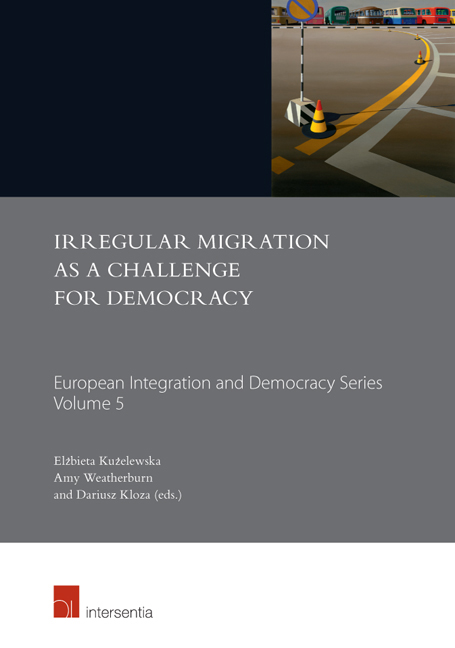Book contents
- Frontmatter
- Foreword
- Introduction
- Contents
- List of Abbreviations
- PART I The European Integration Project And Irregular Migration: Upholding Fundamental Values And Principles
- Part II Migrants, their Rights and the Limits Thereof
- Part III The Status Quo of Migration in Europe: Selected National Perspectives
- 10 The Governance of the Migrant Crisis in Italy (Invited Contribution)
- 11 The Impact of the Migration Crisis on Polish Immigration and Criminal Law
- 12 The Role of NGOs as Partners in Migration Management in Estonia: A Case Study
13 - Linguistic Integration of Adult Migrants in the Era of the Migration Crisis
from Part III - The Status Quo of Migration in Europe: Selected National Perspectives
Published online by Cambridge University Press: 12 October 2018
- Frontmatter
- Foreword
- Introduction
- Contents
- List of Abbreviations
- PART I The European Integration Project And Irregular Migration: Upholding Fundamental Values And Principles
- Part II Migrants, their Rights and the Limits Thereof
- Part III The Status Quo of Migration in Europe: Selected National Perspectives
- 10 The Governance of the Migrant Crisis in Italy (Invited Contribution)
- 11 The Impact of the Migration Crisis on Polish Immigration and Criminal Law
- 12 The Role of NGOs as Partners in Migration Management in Estonia: A Case Study
Summary
INTRODUCTION
According to the United Nations (UN) data, the number of international migrants reached 244 million in 2015 for the world as a whole, which represents a 41 per cent increase compared to 2000. Two thirds of all international migrants live in only 20 countries, starting with the USA, which hosts 19 per cent of all migrants, followed by Germany, the Russian Federation, Saudi Arabia, the United Kingdom and the United Arab Emirates. With these new waves of migration and its diversity, the question may be asked whether there is a link between the migration crisis we are facing now and the level of migrants ‘integration (particularly linguistic integration) into host societies. Bearing in mind the fact that’ knowledge of the “host” language is seen as a barometer of migrants’ integration in a particular society’, this chapter examines whether the language policies and requirements which have been introduced over recent years, and which are predominantly rooted in political responses to the migration crisis, affect the level of social cohesion and integration of immigrants into host societies. The chapter commences with discussion on the concept of linguistic integration in the context of migration in section 2. European policies for the linguistic integration of adult migrants are presented in section 3, followed by an outline of the language policies for migrants in European Union (EU) Member States in section 4. The chapter concludes with an analysis of language learning, language requirements and adult migrant integration in Germany, France and the United Kingdom, which are the countries considered to be the top three destinations favoured by migrants.
THE CONCEPT OF LINGUISTIC INTEGRATION
The White Paper on Intercultural Dialogue defines integration as ‘a two-sided process and as the capacity of people to live together with full respect for the dignity of each individual, the common good, pluralism and diversity, non-violence and solidarity, as well as their ability to participate in social, cultural, economic and political life’ and for a long time there existed a kind of European consensus regarding integration policy. Such consensus was reflected, for example, in respecting the language and cultures of origin of migrants; enabling migrants and their families to learn the language of the host country; or adjusting preliminary migrants’ legal, social and economic conditions to the standards of the host country.
- Type
- Chapter
- Information
- Irregular Migration as a Challenge for Democracy , pp. 257 - 275Publisher: IntersentiaPrint publication year: 2018



